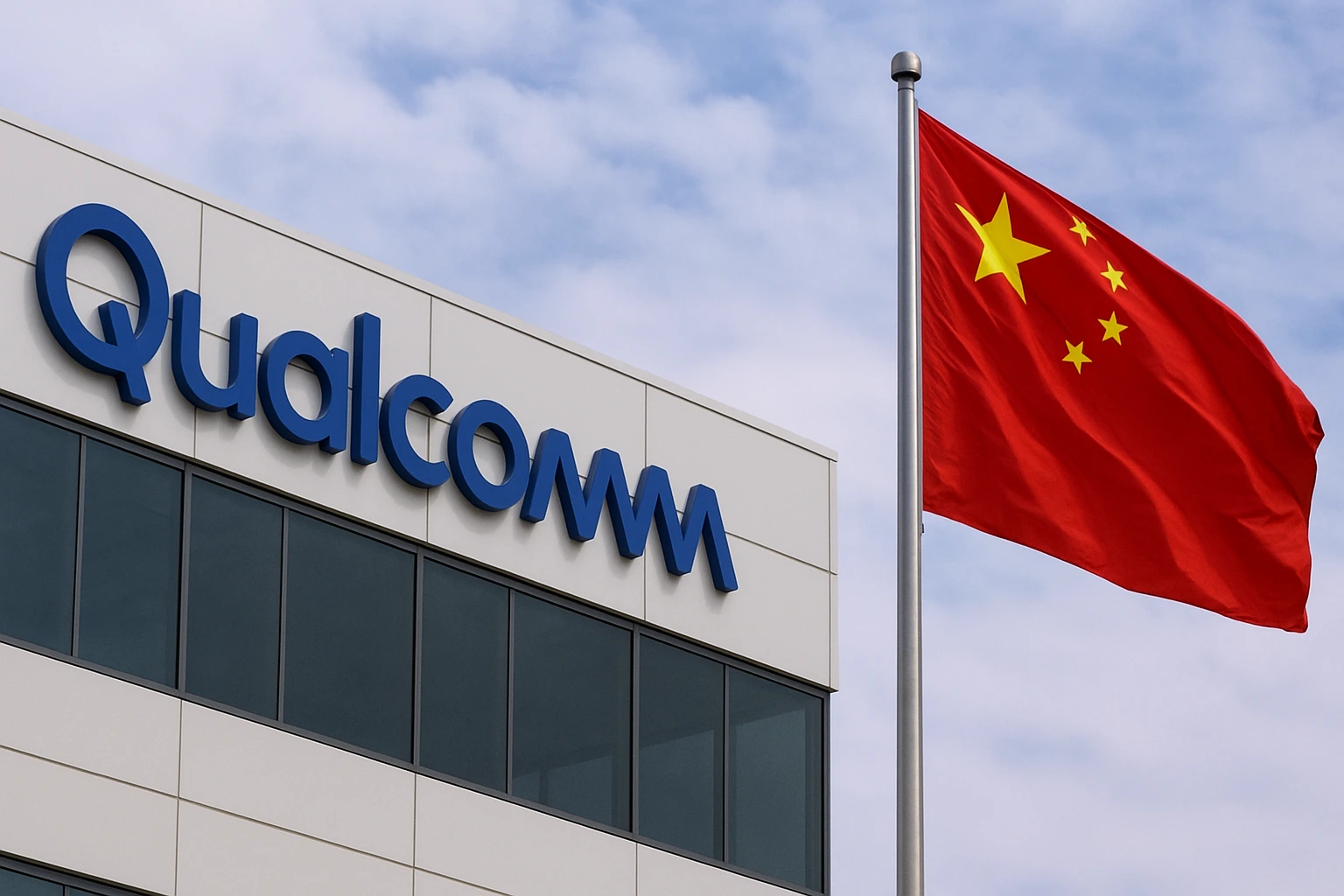BEIJING — China’s market regulator said Sunday that US semiconductor giant Qualcomm Inc. admitted it had failed to notify authorities before completing its acquisition of Israeli automotive chipmaker Autotalks in June, prompting an antitrust investigation into the company’s conduct.
The State Administration for Market Regulation announced that Qualcomm proceeded with the $350 million acquisition despite being informed earlier this year that the transaction required official approval under China’s antitrust laws.
The move comes amid intensifying technology and trade tensions between Washington and Beijing.
Qualcomm’s shares fell more than five percent Friday following separate remarks by former US President Donald Trump threatening new tariffs against China and a possible cancellation of a planned meeting with Chinese President Xi Jinping.
The SAMR statement said the regulator had notified Qualcomm in March 2024 that its proposed acquisition of Autotalks required clearance under China’s Anti Monopoly Law. Qualcomm reportedly told the regulator later that month it would not pursue the transaction further.
However, the California based chipmaker finalized the deal in June without informing SAMR, a violation that led the agency to open a formal antitrust probe, according to the statement. “Qualcomm acknowledged the above facts,” the regulator said.
Autotalks, headquartered in Kfar Netter, Israel, develops vehicle to everything (V2X) communication chips that enable cars to connect with each other and surrounding infrastructure a key component in the development of autonomous driving and smart transportation systems.
China’s antitrust review is part of a broader regulatory tightening targeting multinational mergers that could affect domestic competition or national security interests.
The country has become increasingly assertive in enforcing antitrust rules, particularly against major US technology companies. Qualcomm did not immediately respond to a request for comment from Reuters or other media outlets.
Industry analysts said the case underscores China’s growing scrutiny of foreign tech acquisitions amid geopolitical tensions.
“This move by SAMR signals that Beijing wants greater oversight and compliance from multinational chipmakers operating in its market,” said Lin Zhao, a technology policy researcher at Peking University.
“It also reflects how antitrust tools are becoming instruments of strategic leverage in the global semiconductor competition.”
Some experts noted that the Qualcomm investigation may further strain US China relations at a time when both sides are struggling to stabilize economic and diplomatic ties.
“China has long viewed semiconductors as a matter of national security,” said David Klein, an analyst at the Washington-based Eurasia Policy Institute.
By asserting regulatory authority over major deals like Qualcomm’s, Beijing is sending a message that foreign tech companies must play by its rules.
Qualcomm is one of the world’s largest suppliers of mobile processors and wireless communication chips, with annual revenues exceeding $40 billion.
China remains a crucial market, accounting for roughly two thirds of Qualcomm’s global sales, largely through partnerships with smartphone manufacturers such as Xiaomi, Oppo, and Vivo.
Autotalks’ acquisition is part of Qualcomm’s push to expand its automotive technology division, which the company projects could grow into a $9 billion business by 2030.
Regulatory pushback is not new for Qualcomm. In 2015, the company paid a record $975 million fine to SAMR after being found guilty of violating China’s antitrust law by charging excessive patent licensing fees.
“This isn’t the first time Qualcomm has faced Chinese regulatory scrutiny,” said Xu Wei, a Beijing based corporate attorney.
“But completing a deal without required notification could be seen as a serious procedural breach, especially given the history between the two parties.”
Chinese business observers said the case reflects the growing complexity of cross-border transactions involving technology firms.
“At this point, any US company acquiring foreign assets that have implications for China’s market will be watched closely,” said Li Na, an entrepreneur in Shenzhen’s tech hub. “Regulators are much more cautious about anything that could impact domestic chip development.”
Employees in China’s semiconductor industry also expressed concern that escalating regulatory actions could deter investment and collaboration.
“Many local engineers depend on partnerships with US firms like Qualcomm,” said an employee at a Beijing based chip design company who requested anonymity.
“But every investigation adds another layer of uncertainty to joint projects.” The outcome of the probe could have broader implications for global semiconductor deals.
Analysts said if SAMR imposes penalties or restrictions on Qualcomm, it could set a precedent for how China handles unreported acquisitions involving key technologies.
Under China’s Anti Monopoly Law, failure to declare mergers or acquisitions that meet regulatory thresholds can lead to fines of up to 10 percent of a company’s annual revenue. However, enforcement decisions often vary depending on the perceived strategic importance of the case.
“There’s a real risk that this investigation could delay or complicate other mergers involving US chipmakers,” Klein said. “The message is clear: if you operate in China, you need to ensure regulatory compliance at every stage.”
As China’s State Administration for Market Regulation moves forward with its antitrust investigation, Qualcomm faces renewed scrutiny in one of its most vital markets.
The probe underscores Beijing’s resolve to enforce antitrust compliance and assert control over transactions that intersect with national strategic interests.
For Qualcomm, which has long navigated the fine line between opportunity and oversight in China, the latest challenge could test its ability to balance business expansion with regulatory sensitivity.
